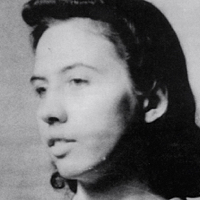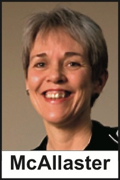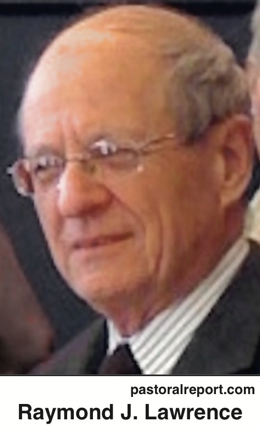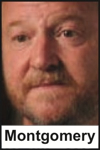Rascals case in brief
In the beginning, in 1989, more than 90 children at the Little Rascals Day Care Center in Edenton, North Carolina, accused a total of 20 adults with 429 instances of sexual abuse over a three-year period. It may have all begun with one parent’s complaint about punishment given her child.
Among the alleged perpetrators: the sheriff and mayor. But prosecutors would charge only Robin Byrum, Darlene Harris, Elizabeth “Betsy” Kelly, Robert “Bob” Kelly, Willard Scott Privott, Shelley Stone and Dawn Wilson – the Edenton 7.
Along with sodomy and beatings, allegations included a baby killed with a handgun, a child being hung upside down from a tree and being set on fire and countless other fantastic incidents involving spaceships, hot air balloons, pirate ships and trained sharks.
By the time prosecutors dropped the last charges in 1997, Little Rascals had become North Carolina’s longest and most costly criminal trial. Prosecutors kept defendants jailed in hopes at least one would turn against their supposed co-conspirators. Remarkably, none did. Another shameful record: Five defendants had to wait longer to face their accusers in court than anyone else in North Carolina history.
Between 1991 and 1997, Ofra Bikel produced three extraordinary episodes on the Little Rascals case for the PBS series “Frontline.” Although “Innocence Lost” did not deter prosecutors, it exposed their tactics and fostered nationwide skepticism and dismay.
With each passing year, the absurdity of the Little Rascals charges has become more obvious. But no admission of error has ever come from prosecutors, police, interviewers or parents. This site is devoted to the issues raised by this case.
On Facebook
Click for earlier Facebook posts archived on this site
Click to go to
Today’s random selection from the Little Rascals Day Care archives….
Click for earlier Facebook posts archived on this site
Click to go to
Today’s random selection from the Little Rascals Day Care archives….
‘Sybil’ came clean, but psychiatrist wasn’t interested

startribune.com
Shirley Ardell Mason
“[Shirley Ardell] Mason was the real person behind the 1970s best seller ‘Sybil,’ which sold 6 million copies with its riveting account of an abused woman inhabited by 16 different personalities. Sally Field won an Emmy for her 1976 portrayal seen by 20 percent of the nation.
“In the process, Mason popularized the condition known as multiple personality disorder – a trendy 1970s diagnosis. The number of cases mushroomed from about 75 to 40,000 after ‘Sybil’ was published….
“In the trove of records kept on her case, Mason actually admitted making up the many personalities.
“ ‘I do not really have any multiple personalities,’ she wrote in a letter to her psychiatrist. ‘I do not even have a “double.” … I am all of them. I have been lying in my pretense of them.’
“Her doctor chalked it up to a defensive ploy to avoid deeper therapy….”
– From “The Minnesotan behind Sybil, one of America’s most famous psychiatric patients”
by Curt Brown in the Minneapolis Star Tribune (Feb. 25)
![]()
‘Give child’s testimony same weight’ as adult’s?
 Feb. 25, 2013
Feb. 25, 2013
“The 99 guilty verdicts against (Bob) Kelly appear to have set a benchmark for such cases: that youthful witnesses can have enough credibility to win convictions on their word alone.
“‘This validated child witness testimony,’ said Carolyn McAllaster, who teaches a child advocacy clinic at Duke University’s law school and trial practice at the University of North Carolina School of Law.
“‘I think the reason a lot of prosecutors hesitate to take these cases is they fear these children won’t be believed by juries,’ she said. ‘They should give a child’s testimony the same weight they would give an adult’s testimony. I think that children are very believable and that their testimony can be judged on its own merits.’ ”
– From “Rascals verdict affirms children’s credibility” in the Raleigh News & Observer (April 26, 1992)
McAllaster has gone on to become director of the AIDS Legal Project and a clinical professor of law at Duke.
Has she changed her mind about the credibility of child witnesses?
I asked her.
She hasn’t responded.
After 20 years, plea to parents still unanswered
 April 11, 2014
April 11, 2014
“It may be hard for you to own the fact that you were duped by therapists and prosecutors, as well as misled by your own naivete about childhood sexuality. While it may be difficult now to acknowledge your five-year-long wrong, it will be far worse if your children have to do it for you, and far worse for you and your children to have history indict you as an unrepentant bearer of these terrible false accusations.
“A place for you in history is already assured. What history finally writes about you now depends on you….”
– From “An Open Letter to the Accusing Parents in the Little Rascals Child Abuse Case” by Raymond J. Lawrence in Contra Mundum (Oct. 1, 1993)
Will even one Edenton parent ever heed Lawrence’s call to “to undo this elaborate fabrication that has caused years of suffering to so many”? What would it take to remove the blinders, to accept responsibility and to separate yourself from the true believers?
N.C. law stacked deck against defendants
Oct. 17, 2011
The two largest ritual-abuse day-care cases – Little Rascals in Edenton and McMartin in California – bore many similarities but McMartin resulted in not a single conviction.
 I asked Mark Montgomery, who in 1995 successfully argued Bob Kelly’s case before the North Carolina Court of Appeals, why that might have been:
I asked Mark Montgomery, who in 1995 successfully argued Bob Kelly’s case before the North Carolina Court of Appeals, why that might have been:
“Each state has its own criminal laws, rules of procedure and evidence, etc. … Several features of the law in North Carolina gave prosecutors an advantage.
“First, the prosecution interviewed all the children attending Little Rascals Day Care. Most said they had seen no abuse. The law allowed the prosecution to withhold those interviews from the defense. And the defense was not allowed to interview the children. So all the jury heard were the stories of the 12 children who were the subject of indictments.
“Second, the law allowed the state’s expert witnesses to testify that they believed the children’s claims.
“Third, the defense was not allowed to conduct its own physical or psychological examinations of the children.
“Fourth, North Carolina had (and has) very liberal rules for the admission of hearsay by children in these cases. Almost anything a child says out of court can be used by the jury as substantive evidence of guilt. An effective prosecution strategy was to enlist the parents to elicit allegations of abuse. For months, parents, who were told their children had been abused, pleaded with their children to ‘disclose.’ Some eventually did. The prosecution then called the parents as witnesses to testify to what their children said, even if the children themselves did not testify.”











0 CommentsComment on Facebook